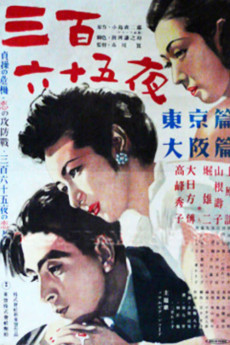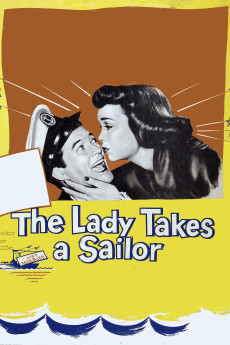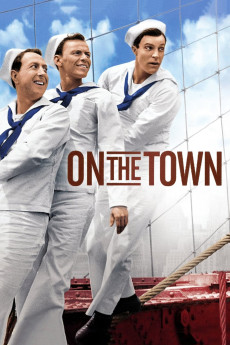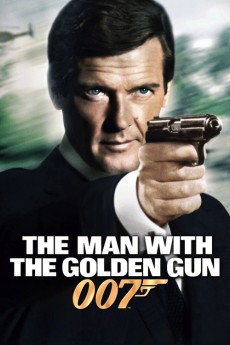Comprehensive academic and psychological analysis of Holiday Affair 1949
Holiday Affair (1949) – In-depth Review
Academic Review
Holiday Affair is a 1949 action/comedy/drama/family/romance film directed by Don Hartman. This academic review delves into various aspects of the film, analyzing its narrative structure, character development, thematic depth, and more.
Plot Summary
The film follows Connie Ennis (Janet Leigh), a widowed single mother who works as a comparison shopper. Her life takes an unexpected turn when she meets Steve Mason (Robert Mitchum), a sales clerk who gets fired because of her. The story unfolds around their budding romance and the complications that arise with Connie’s existing relationship with Carl Davis (Wendell Corey).
Characters and Acting
Janet Leigh’s portrayal of Connie Ennis is heartfelt and nuanced, capturing the struggles of a single mother during the post-war era. Robert Mitchum brings a laid-back charm to Steve Mason, creating a believable and endearing character. Wendell Corey as Carl Davis provides a solid performance, presenting a contrast to Mitchum’s character. The child actor Gordon Gebert, playing Connie’s son Timmy, adds to the film’s warmth and emotional depth.
Direction
Don Hartman’s direction is adept at balancing the various tones of the film, from light-hearted comedy to touching drama. His ability to elicit strong performances from the cast and his skillful use of New York City settings add authenticity and charm to the film. Hartman ensures that the narrative flows smoothly, maintaining the audience’s engagement throughout.
Cinematography
Milton R. Krasner’s cinematography captures the essence of New York City during the holiday season, using soft lighting and festive decorations to create a warm and inviting atmosphere. The camera work is subtle yet effective, enhancing the emotional resonance of key scenes, such as Connie and Steve’s heartfelt conversations.
Music and Score
Leigh Harline’s musical score complements the film’s tone perfectly, using a mix of whimsical and sentimental melodies to underscore the narrative. The music enhances the film’s emotional impact, particularly in scenes that highlight the growing connection between Connie and Steve.
Themes
The film explores themes of love, loss, and second chances. Connie’s journey reflects the challenges of moving on after the death of her husband, while Steve’s character embodies the possibility of new beginnings. The film also touches on themes of integrity and the importance of family, as seen in Steve’s selfless actions and Timmy’s desire for a father figure.
Screenplay and Dialogue
The screenplay by Isobel Lennart is sharp and engaging, filled with witty dialogue and heartfelt moments. The interactions between Connie and Steve are particularly well-written, capturing the chemistry and tension between them. Memorable lines, such as Steve’s declaration, “You don’t have to buy me anything; I just like being with you,” add to the film’s charm.
Special Effects
While the film does not rely heavily on special effects, the practical effects used to create the holiday atmosphere are effective and enhance the film’s setting. The use of real locations and authentic holiday decorations add to the film’s overall charm and realism.
Editing and Pacing
Harry Marker’s editing ensures that the film maintains a steady and engaging pace. The transitions between scenes are smooth, and the narrative unfolds naturally. The pacing keeps the audience invested in the characters’ journeys and the development of the central romance.
Production Design
The production design by Albert S. D’Agostino and Carroll Clark captures the essence of post-war New York City during the holidays. The sets are detailed and immersive, creating a believable and inviting world for the characters. The design enhances the film’s nostalgic and heartwarming feel.
Historical Accuracy
Holiday Affair offers a glimpse into post-war American society, reflecting the economic and social dynamics of the time. The portrayal of Connie as a working single mother and the challenges she faces provide insight into the changing roles of women in the late 1940s.
Overall Impressions
Holiday Affair is a delightful and heartwarming film that successfully blends elements of action, comedy, drama, family, and romance. Its engaging performances, thoughtful direction, and charming narrative make it a standout entry in the holiday film genre. The film’s exploration of themes such as love, loss, and second chances resonates with audiences, ensuring its lasting appeal.
Rating and Recommendation
Overall, Holiday Affair receives a rating of 8/10. It is highly recommended for fans of classic holiday films and those interested in heartwarming stories that blend humor, drama, and romance. Its engaging narrative and charming performances make it a must-watch for the holiday season.
Psychological Review
The psychological review of Holiday Affair delves into the deeper layers of the characters’ motivations and the film’s exploration of psychological themes.
Psychological Concepts Explored
The film explores key psychological concepts such as grief, attachment, and resilience. Connie’s journey through grief and her struggle to open up to new possibilities are central to the narrative. The film portrays her internal conflict and gradual healing process with sensitivity and depth.
Subconscious Mind
Connie’s interactions with Steve often reveal her subconscious desires and fears. Her initial resistance to Steve’s advances reflects her fear of moving on and betraying her late husband’s memory. The film subtly portrays her subconscious mind through her actions and decisions, highlighting her internal struggle.
Memory and Guilt
Memory and guilt are significant themes in Connie’s character arc. Her reluctance to embrace a new relationship stems from guilt over moving on from her late husband. Specific scenes, such as her reminiscing about past Christmases, highlight the weight of her memories and the impact of guilt on her present decisions.
Reality Testing
The concept of reality testing is explored through Connie’s interactions with Steve and Carl. Connie’s ability to discern genuine intentions and authenticity is tested as she navigates her feelings for both men. Her ultimate decision to choose Steve reflects her growth and newfound clarity.
Group Dynamics and Trust
The film portrays group dynamics and trust through Connie’s relationships with Steve, Carl, and her son Timmy. Trust is a recurring theme, as Connie learns to trust Steve and let go of her apprehensions. The bond between Steve and Timmy also exemplifies the development of trust and mutual respect.
Identity and Self-Perception
Connie’s journey is also one of self-discovery and redefined identity. As she grapples with her role as a single mother and her feelings of loneliness, she gradually discovers her strength and capacity for love. The film portrays her evolving self-perception and the impact of her experiences on her identity.
Risk and Reward
The psychological aspect of risk-taking is evident in Connie’s decision to pursue a relationship with Steve. Her initial reluctance is overshadowed by her growing realization that emotional risks are necessary for potential rewards. This theme is also mirrored in Connie’s eventual decision to embrace a new relationship.
Impact on the Viewer
Holiday Affair has a significant emotional and psychological impact on viewers. Its exploration of relatable themes such as grief, love, and second chances resonates deeply, evoking empathy and introspection. The film’s heartwarming narrative and charming characters leave a lasting impression, encouraging viewers to reflect on their own experiences with love and loss.
Additional Reviews
Historical Analysis
The film offers a snapshot of post-war America, reflecting the social and economic dynamics of the late 1940s. Connie’s role as a working single mother highlights the changing societal norms and the increasing presence of women in the workforce. The film’s portrayal of New York City during the holiday season adds to its historical authenticity and charm.
Cultural Studies
Holiday Affair explores cultural themes such as family, love, and societal expectations. The film’s depiction of a non-traditional family structure and the challenges faced by single mothers provides insight into the cultural landscape of the time. The emphasis on holiday traditions and the importance of family further enhances its cultural relevance.
Film Theory
From a film theory perspective, Holiday Affair employs classical Hollywood narrative techniques, characterized by a clear storyline, well-defined characters, and a resolution that restores social order. The film’s use of lighting, camera angles, and music aligns with the conventions of the romantic comedy genre, enhancing its overall impact.
Critics’ Reviews
Contemporary reviews of Holiday Affair were generally positive, praising the performances of Janet Leigh and Robert Mitchum, as well as Don Hartman’s direction. Critics appreciated the film’s blend of humor and heart, noting its appeal as a holiday film. The film’s enduring popularity among audiences is a testament to its lasting charm and effectiveness.
Genre-Specific Reviews
As a romantic comedy with elements of drama and family, Holiday Affair stands out for its balanced storytelling and engaging performances. The film’s ability to seamlessly blend humor, romance, and emotional depth makes it a noteworthy entry in the holiday film genre. Its timeless themes and relatable characters contribute to its enduring appeal.
Festival Reviews
While Holiday Affair may not have been a prominent feature at major film festivals, its charm and heart have earned it a place in the hearts of holiday film enthusiasts. The film’s positive reception and continued popularity underscore its significance as a classic holiday romance.
Conclusion
Holiday Affair is a delightful and heartwarming film that combines elements of action, comedy, drama, family, and romance. Its engaging narrative, strong performances, and exploration of timeless themes make it a standout entry in the holiday film genre. Through its academic and psychological analysis, this review highlights the film’s depth and enduring appeal, recommending it as a must-watch for fans of classic holiday cinema.







